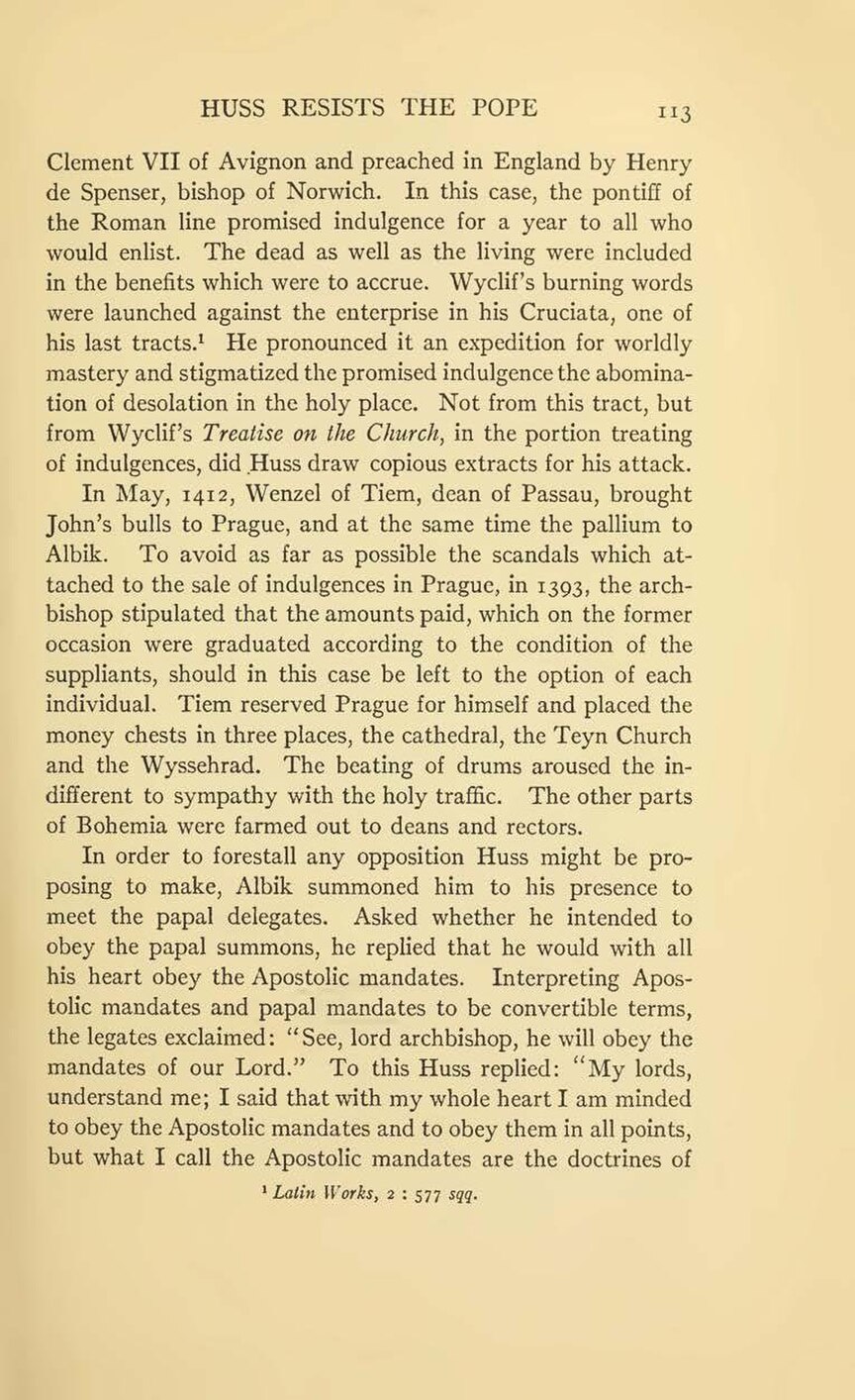Clement VII of Avignon and preached in England by Henry de Spenser, bishop of Norwich. In this case, the pontiff of the Roman line promised indulgence for a year to all who would enlist. The dead as well as the living were included in the benefits which were to accrue. Wyclif’s burning words were launched against the enterprise in his Cruciata, one of his last tracts.[1] He pronounced it an expedition for worldly mastery and stigmatized the promised indulgence the abomination of desolation in the holy place. Not from this tract, but from Wyclif’s Treatise on the Church, in the portion treating of indulgences, did Huss draw copious extracts for his attack.
In May, 1412, Wenzel of Tiem, dean of Passau, brought John’s bulls to Prague, and at the same time the pallium to Albik. To avoid as far as possible the scandals which attached to the sale of indulgences in Prague, in 1393, the archbishop stipulated that the amounts paid, which on the former occasion were graduated according to the condition of the suppliants, should in this case be left to the option of each individual. Tiem reserved Prague for himself and placed the money chests in three places, the cathedral, the Teyn Church and the Wyssehrad. The beating of drums aroused the indifferent to sympathy with the holy traffic. The other parts of Bohemia were farmed out to deans and rectors.
In order to forestall any opposition Huss might be proposing to make, Albik summoned him to his presence to meet the papal delegates. Asked whether he intended to obey the papal summons, he replied that he would with all his heart obey the Apostolic mandates. Interpreting Apostolic mandates and papal mandates to be convertible terms, the legates exclaimed: “See, lord archbishop, he will obey the mandates of our Lord.” To this Huss replied: “My lords, understand me; I said that with my whole heart I am minded to obey the Apostolic mandates and to obey them in all points, but what I call the Apostolic mandates are the doctrines of
- ↑ Latin Works, 2: 577 sqq.
